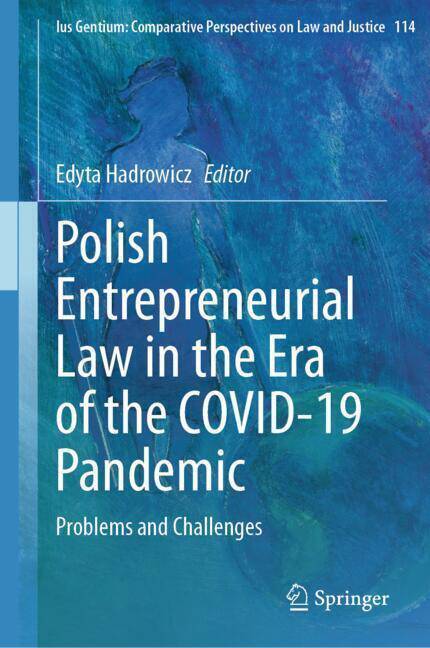
- Afhalen na 1 uur in een winkel met voorraad
- Gratis thuislevering in België vanaf € 30
- Ruim aanbod met 7 miljoen producten
- Afhalen na 1 uur in een winkel met voorraad
- Gratis thuislevering in België vanaf € 30
- Ruim aanbod met 7 miljoen producten
Zoeken
Polish Entrepreneurial Law in the Era of the Covid-19 Pandemic
Problems and Challenges
€ 168,95
+ 337 punten
Omschrijving
The outbreak of the COVID-19 pandemic presented Polish legislators with a host of legal dilemmas, the aftermath of which resulted in numerous legislative changes. A significant part of these relate to entrepreneurial law in a broad sense. However, the situation created by the COVID-19 pandemic also had a broader dimension, resulting in the introduction of exceptions as the global norm. Similarly, in the domestic legal order, the actions of public authorities in various forms (restrictions, limitations, and ultimately the Lockdown), as well as non-legislative legal activity gave rise to many problems in Poland and have been the subject of various assessments. Hence, the book analyses the legal situation of entrepreneurs in the era of the COVID-19 pandemic both in terms of the amendments and changes introduced and the new regulations, commonly referred to in the public sphere as "covid laws" or "anti-covid shields". Therefore, the book assesses the legal solutions and the level of legislative technique in the broadly understood entrepreneurial law. It focuses on the solutions introduced by Polish legislators and seeks to answer the following questions: to what extent did the relevant public authorities appropriately respond to the threats posed by the pandemic, and did they effectively provide legal protection for entrepreneurs?
Specificaties
Betrokkenen
- Uitgeverij:
Inhoud
- Aantal bladzijden:
- 158
- Taal:
- Engels
- Reeks:
- Reeksnummer:
- nr. 114
Eigenschappen
- Productcode (EAN):
- 9783031574795
- Verschijningsdatum:
- 17/07/2024
- Uitvoering:
- Hardcover
- Formaat:
- Genaaid
- Afmetingen:
- 156 mm x 234 mm
- Gewicht:
- 417 g

Alleen bij Standaard Boekhandel
+ 337 punten op je klantenkaart van Standaard Boekhandel
Beoordelingen
We publiceren alleen reviews die voldoen aan de voorwaarden voor reviews. Bekijk onze voorwaarden voor reviews.










